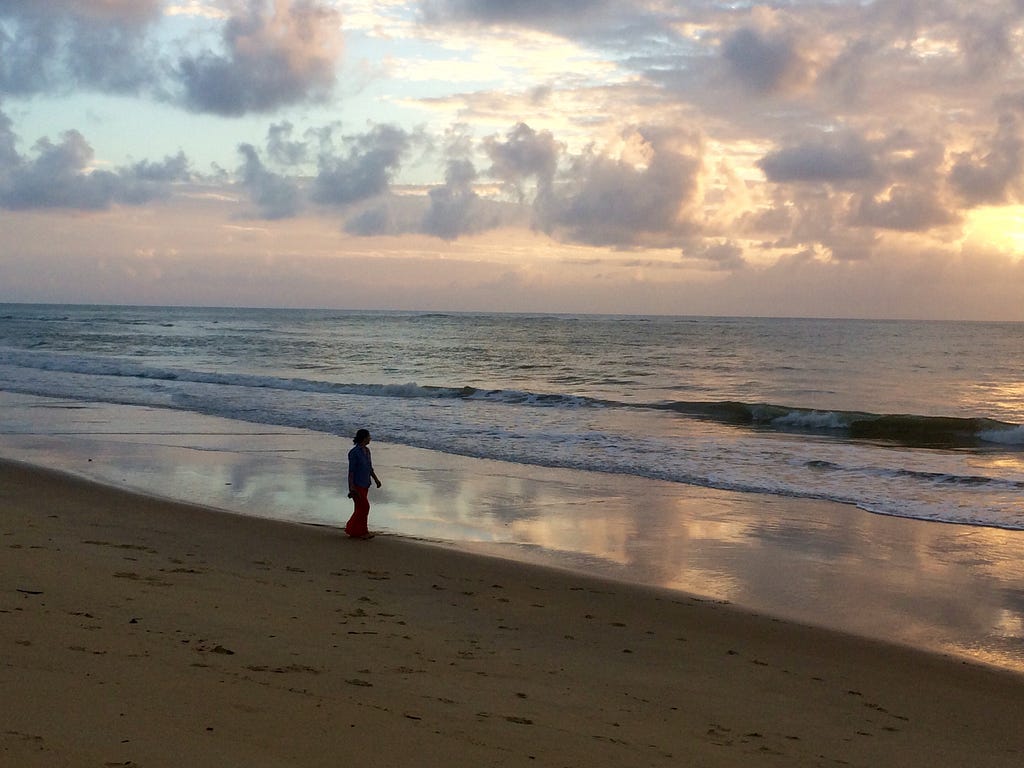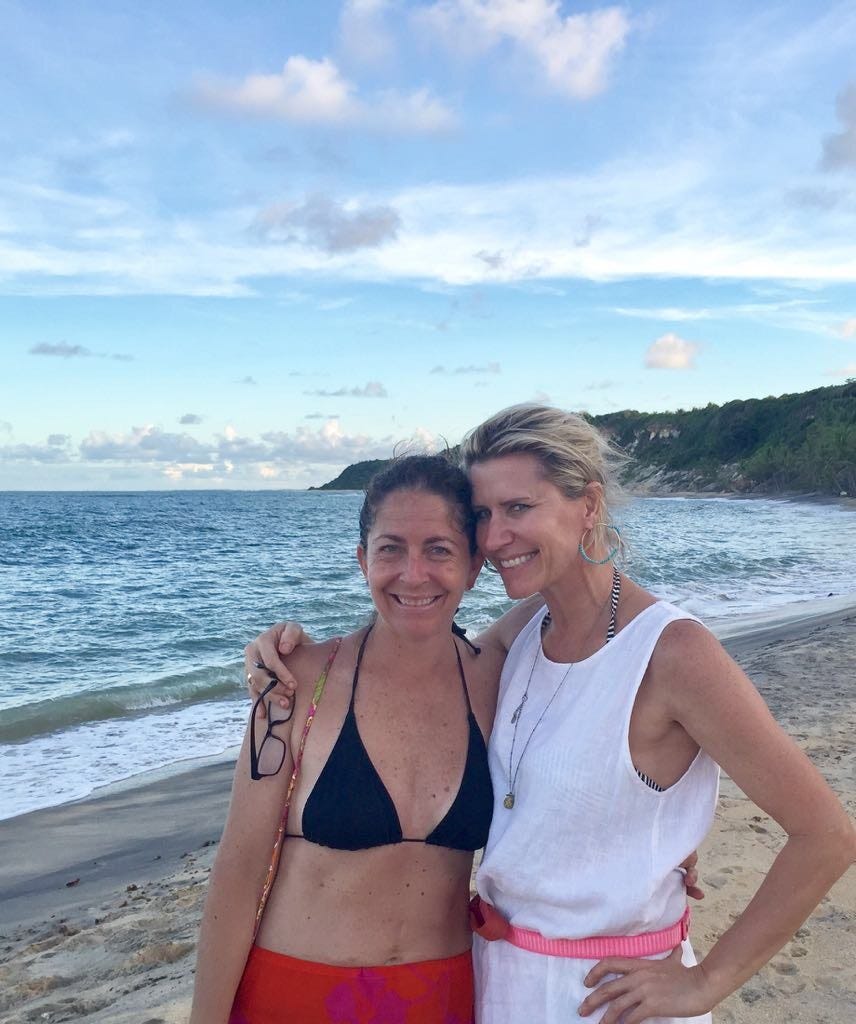Health, exercise and staying connected with your body during cancer treatment

I’m from Austin, Texas, and work as a physical therapist and Pilates teacher. I was diagnosed with Stage III rectal cancer in 2015 at the age of 43. As happens with so many individuals under 50, my cancer was misdiagnosed as internal hemorrhoids for months before I got a colonoscopy. The diagnosis came as a monumental shock!
I exercise almost daily, eat a relatively healthy diet, and don’t have a significant family history of cancer. As a 43 year old divorcee, the idea of rectal cancer was mortifying (who wants to talk about their rectum all day?), and dealing with the idea of a temporary ileostomy or permanent colostomy was overwhelming. I couldn’t imagine what my body would look like with a stoma and bag, but it’s amazing the way things are never as bad as we think they will be. It actually pressed an incredible reset on what I see as beautiful, and the respect I have for my body.
“It actually pressed an incredible reset on what I see as beautiful, and the respect I have for my body.”
The treatments for rectal cancer are pretty strenuous: chemoradiation, surgery to resect most of the rectum and place a temporary ileostomy (in my case), intravenous chemo, then finally surgery to reverse the ileostomy. I walked or did Pilates almost everyday of my treatment, and found that I felt infinitely better afterward, even if the thought of getting off my couch seemed absurd beforehand. I drank loads of water, and feel strongly about the importance of hydration, as well.
“the Livestrong Guidebook helped me organize an onslaught of information.”
I often sought the Livestrong website for advice or information about treatments that had been suggested, and immediately after diagnosis my sister brought me the Livestrong Guidebook which helped me organize an onslaught of information. I can’t recommend the Guidebook highly enough! It is an essential tool.


I survived my treatments, and found that over the following year, I kept trying to go back to the way my life was before cancer, and that’s kind of impossible. Not only because of the physical side effects, but because your perspective changes after going through this. The most important advice I could give someone facing a cancer diagnosis is to talk to your healthcare team about exercise, and be consistent with a program.
“Accept that this will change you, and that it is okay.”
Cancer treatments can be rough, and you need strength and endurance to keep going! Also, I think it helps to stay connected to your body. Stay hydrated. It helps with the headaches, medications, constipation, and chemo. Accept that this will change you, and that it is okay. There is beauty everywhere. Find it. It’s okay to be mad. This sucks. Accept help graciously. You’re going to need it. A single cell metastasized to my lungs over the last 6 months, and I had surgery to resect it in May of this year. It’s a process, and one that I’ve finally learned to accept.
Shelby, colorectal cancer survivor
If you or someone you know has been diagnosed with cancer, LIVESTRONG is here to help. Visit our website or give us a call: 1–855–220–777 for free, confidential support.
Health, exercise and staying connected with your body during cancer treatment was originally published in Livestrong Voices on Medium, where people are continuing the conversation by highlighting and responding to this story.